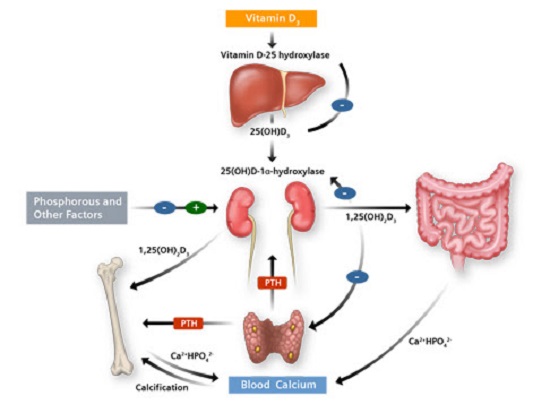1. Introduction to the importance of Vitamin D
Vitamin D is an essential vitamin for human health. It helps the body absorb calcium and phosphorus from food, making bones strong and healthy, and strengthens the immune system. Vitamin D can be found in many types of food such as eggs, milk, butter, and especially in fish.

In the context of increasing prevalence of Vitamin D deficiency worldwide, providing adequate Vitamin D for the body is becoming increasingly important. In which, accessing natural sources of Vitamin D such as fish plays an important role in maintaining health.
This article will provide you with basic knowledge about Vitamin D in fish, from the mechanism of action of Vitamin D to its benefits for human health. The article will also introduce Vitamin D-rich fish types and preparation methods to maintain their nutritional value, thereby helping you optimize the amount of Vitamin D supplied to the body.
2/ What is Vitamin D and why is it important?
Vitamin D is a fat-soluble vitamin that is essential for human health. It helps the body absorb calcium and phosphorus from food, which in turn helps maintain the strength of bones and teeth. Vitamin D also plays an important role in supporting the immune system, helping the body fight against infections and other diseases. Furthermore, research suggests that Vitamin D deficiency can lead to many health problems, including osteoporosis, rickets, and malnutrition. Therefore, adequate Vitamin D supplementation is crucial for keeping the body healthy.
2.1/ Definition and Mechanism of Action of Vitamin D
Definition:
Vitamin D is a fat-soluble vitamin that is essential for human health. It has two natural forms, vitamin D2 (ergocalciferol) and vitamin D3 (cholecalciferol). Vitamin D2 originates from plants, while Vitamin D3 is produced by the body when the skin is exposed to sunlight.
Mechanism of Action:
The mechanism of action of Vitamin D begins when the skin is exposed to sunlight, which activates the process of synthesizing Vitamin D3 in the skin. Then, Vitamin D3 is transported to the liver, where it is converted into an intermediate substance called hydroxyvitamin D3 (25(OH)D3). This substance is then transferred to the kidneys, where it is converted into the active form of Vitamin D called calcitriol.

Calcitriol is the active form of Vitamin D, and it works by stimulating the absorption of calcium and phosphorus from food in the digestive tract. It also stimulates bone and teeth cells to absorb calcium and phosphorus, thereby enhancing their strength. Additionally, calcitriol activates the immune system, helping the body to defend against infections and other diseases.
2.2 / Why is Vitamin D important for human health?
Supports the development and maintenance of strong bones and teeth
Vitamin D helps absorb calcium and phosphorus from food, thereby maintaining the health of bones and teeth. If there is a deficiency of Vitamin D, the body will not be able to absorb enough calcium and phosphorus, leading to weakened bones, rickets, and other bone-related issues.
Supports the immune system
Research has shown that Vitamin D activates the immune system, helping the body fight against infectious diseases and other conditions. It may also reduce the risk of immune-related diseases such as autoimmune disorders, arthritis, and diabetes.
Supports nervous and psychological function
Vitamin D also plays an important role in human nervous and psychological function. Research has shown that a deficiency of Vitamin D can cause psychological problems such as depression and anxiety, as well as nerve function issues like memory loss and impaired cognitive function.
Supports cardiovascular health
Studies have also shown that Vitamin D may reduce the risk of cardiovascular diseases such as stroke, arterial disease, and heart failure. Vitamin D has anti-inflammatory properties and can reduce blood sugar levels, factors that can contribute to increased risk of cardiovascular disease.
In summary, Vitamin D is an important vitamin for human health. It is essential to supplement Vitamin D from food sources and sunlight exposure to maintain a healthy body and prevent health problems.





























